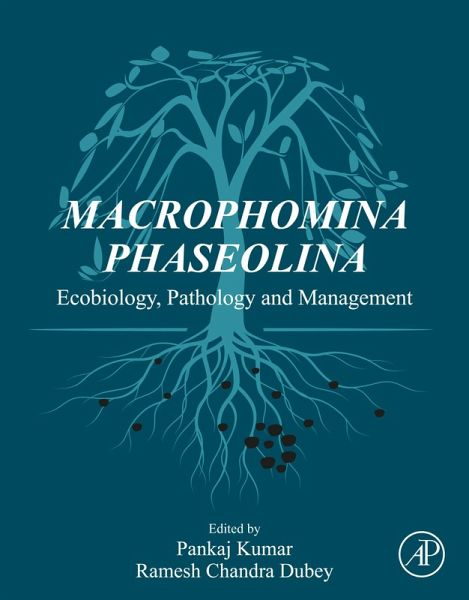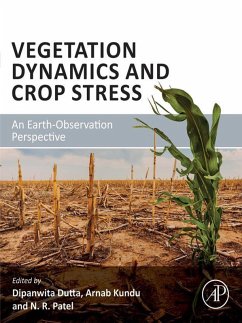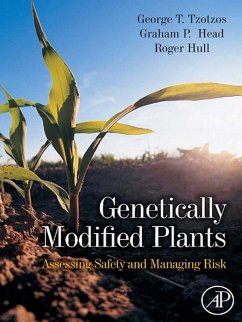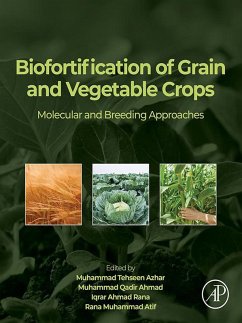
Macrophomina Phaseolina (eBook, ePUB)
Ecobiology, Pathology and Management
Redaktion: Kumar, Pankaj; Dubey, Ramesh Chandra
Versandkostenfrei!
Sofort per Download lieferbar
138,95 €
inkl. MwSt.
Weitere Ausgaben:

PAYBACK Punkte
69 °P sammeln!
Macrophomina Phaseolina: Ecobiology, Pathology and Management provides insights into the sustainable prevention and treatment of this wide-spread challenge to plant health. With a focus on agricultural as well as non-food plant challenges, the book highlights diverse approaches and provides central insights. The pathogen¿of M. phaseolina affects the fibrovascular system of roots and basal internodes of its host, impeding the transport of water and nutrients to the upper parts of the plant, thus resulting in progressive wilting, premature drying and dying, loss of vigor, and reduced yield. Fin...
Macrophomina Phaseolina: Ecobiology, Pathology and Management provides insights into the sustainable prevention and treatment of this wide-spread challenge to plant health. With a focus on agricultural as well as non-food plant challenges, the book highlights diverse approaches and provides central insights. The pathogen¿of M. phaseolina affects the fibrovascular system of roots and basal internodes of its host, impeding the transport of water and nutrients to the upper parts of the plant, thus resulting in progressive wilting, premature drying and dying, loss of vigor, and reduced yield. Finally, the book explores the interaction of M. phaseolina with soil, microbes and ecological conditions to control disease-causing strategies. Recognizing the necessity that strategies applied to manage the disease should have no or minimum effect on ecological resources, the book focuses on alternative sustainable management technologies such as mix-cropping, the use of antagonistic bacteria and fungi and microbial biosurfactants, plant growth promoting antagonistic rhizobacteria and how cultural practices may also play an important role. - Identifies plant diseases caused by Macrophomina phaseolina - Explores M. phaseolina genetic diversity - Highlights pesticide tolerance and alternative control options
Dieser Download kann aus rechtlichen Gründen nur mit Rechnungsadresse in A, B, BG, CY, CZ, D, DK, EW, E, FIN, F, GR, HR, H, IRL, I, LT, L, LR, M, NL, PL, P, R, S, SLO, SK ausgeliefert werden.













